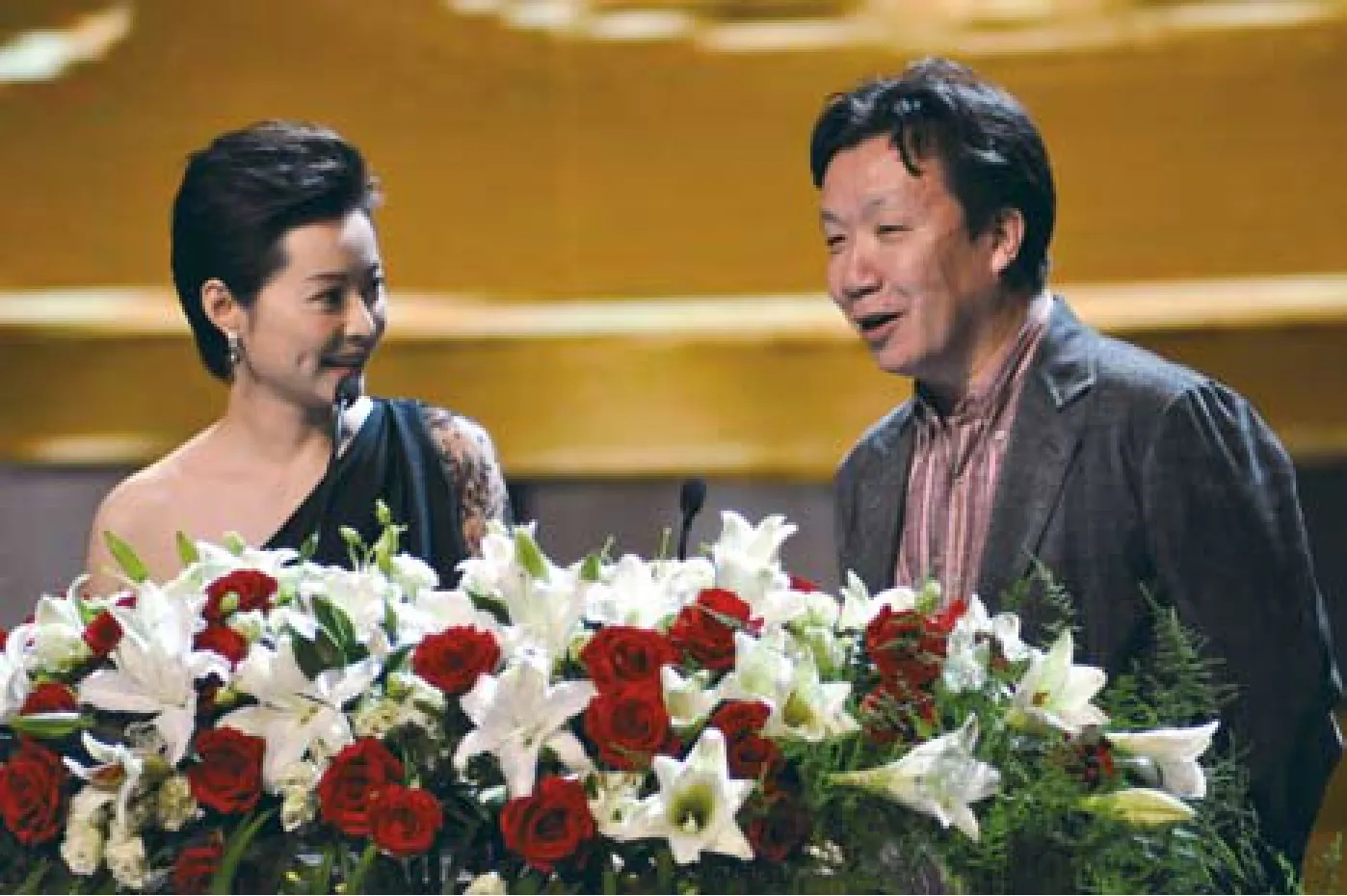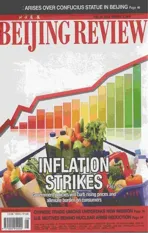Writers Take Center Stage
2011-11-17ByZHOUXIAOYAN
By ZHOU XIAOYAN
Writers Take Center Stage
By ZHOU XIAOYAN
Spotlight shines on scriptwriters as Chinese audiences complain about show quality

CFP
Gao Xuan, a well-known Chinese screenwriter who has been scriptwriter of several popular TV series, got confused and angry when she saw herself credited as “earlier script creator” in Director Chen Kaige’s latest movieSacrifice. Gao claimed that she finished the first half of the movie script and then quit the job. But she found that most of the movie’s plot was actually the fruit of discussions between herself, Chen and another scriptwriter.
“I’ve made efforts and hope to be recognized. I should be given the title‘screenwriter’ rather than some vague title such as ‘earlier script creator’. I don’t want to make a big fuss out of it but I want to make my voice heard so that people will pay more attention to the current condition of screenwriters and will protect our legitimate rights,” said Gao.
This news aroused people’s attention to the current conditions of screenwriters in China. Chinese audiences commonly complain that good scripts are sorely lacking in China. For example, many people criticized the quality of the comedy sketches in the Spring Festival Evening Gala of China Central Television this year and many people were quite disappointed. People could see clearly the lack of good writers and high-quality scripts behind the fancy evening show.
Awkward position
It is a consensus that China’s screenwriters have an awkward position in TV and movie productions. What bothers writers most is the frequent changes made by director and producers. Scriptwriters usually lose control over their stories after handing them over to producers. At the same time, directors feel free to decide how or if to credit writers.
“Investors and directors usually make lots of changes. If the changes later prove to be good, they will take full credit for the resulting success. If not, we will usually be blamed for the failure,” said Wang Wanping, a famous screenwriter.
Although hundreds of thousands of people are engaged in script writing, the system is highly stratifed by pay, with few people at the top.
An article inNanhu Evening Newson the status quo of Chinese scriptwriters said TV scriptwriters in China can generally be categorized into four different levels by pay. The highest level earns about 80,000 yuan ($12,000) to 150,000 yuan ($23,000) per episode. This top echelon comprises less than 20 people, including famous scriptwriters Gao Mantang, Zou Jingzhi, Hai Yan, Wang Hailing and Du Liang. The second level earns about 30,000 yuan ($4,500) per episode, with still very few writers at this level. The third level earns about 20,000 yuan ($3,000) per episode and the lowest level earns 5,000 yuan ($758) to 8,000 yuan ($1,212) per episode.
These fgures contrast with much higher levels in the United States. For example, the American Playwrights Union stipulates that the lowest payment per episode is $35,079 and famous U.S. scriptwriters can get much more than that amount, no matter whether a script is shot or not.
In foreign countries, pay for scriptwriters accounts for about 10 to 20 percent of the total investment in a TV production. In China, however, this fgure is 5 percent at most, and often much lower. Most money is spent on actors’ salaries.
Scriptwriters in China also often face unfair contract terms. The most common terms to which writers object are: The script should be revised until investors are fully satisfed; and a portion of the final payment for the writer should be held until the script is shot. Even frst-class writers have to accept these terms.
Under these terms, many writers end up with little or no money for their stories.
Solution
Many Chinese scriptwriters hope there will be a trade association to safeguard their legitimate rights.
“The good news is that some efforts have been made in this respect. A non-governmental association has been established. If it can work well, it will be very good for China’s scriptwriters,” said Wang.
Early in the 1990s, the Sea Horse Group, headed by Wang Shuo, a famous Chinese author and scriptwriter, fought hard against producers. As a result, the State Administration of Radio, Film and Television raised payments for screenwriters. That was the beginning of scriptwriters’efforts to secure their legal rights.
With the turn of the millennium, more and more lawsuits were fled by scriptwriters and producers, seeking to insure their legal rights. Scriptwriters want to be more than just wordsmiths. They also want to be the final implementers and supervisors of the stories they create and get full credit for their work.
